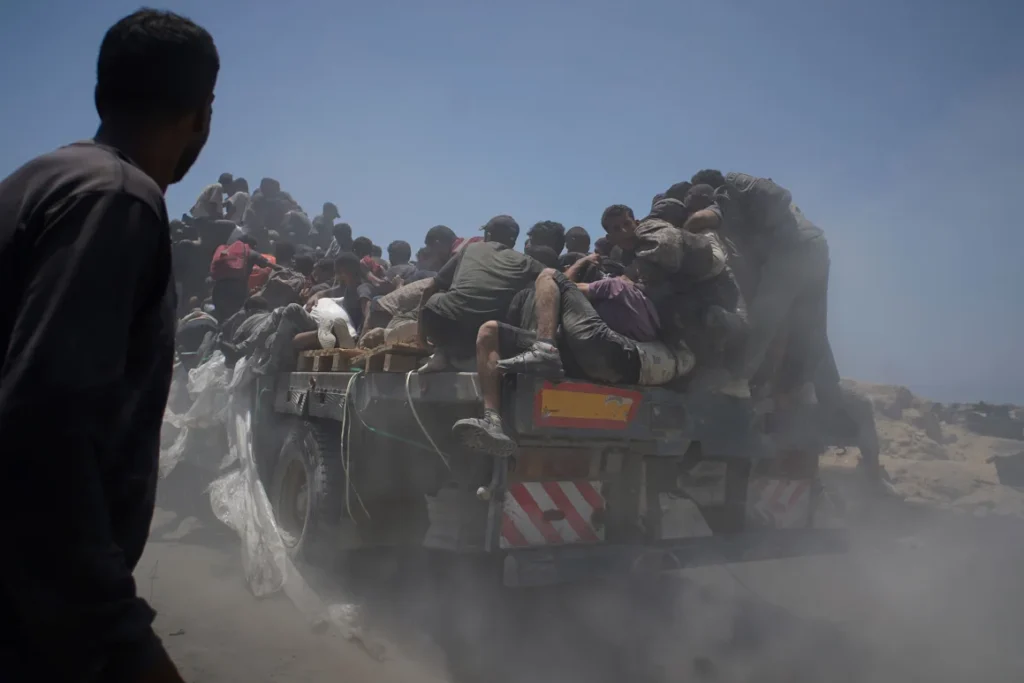n the midst of crisis and lawlessness in Gaza local families have turned to tribal clans to help secure and distribute humanitarian aid. As government structures collapse and gang violence rises these clans have emerged to escort aid convoys guard distribution points and prevent looting.
These clan protection networks operate in towns and neighborhoods where conditions are most dire. With broken order and few functioning institutions they arrange armed escorts to move food water and supplies safely. Some communities view these efforts as a lifeline in areas otherwise controlled by militants or criminal gangs.
Residents express mixed feelings. While many are grateful for protection delivered by familiar local clans this shift highlights the absence of formal oversight. Aid delivery under clan supervision often means negotiators decide who receives relief and how resources are allocated creating a parallel system rooted in community ties.
Violent incidents continue nearby. Armed groups sometimes hijack trucks or open fire near aid sites one mile from crossing points. The presence of clan patrols helps reduce incidents for some convoys but also underscores the risk civilian aid workers and passengers face when navigating these routes.
In response humanitarian organizations are calling for secure humanitarian corridors supported by neutral forces rather than family networks. They warn that aid distribution tied to local clans risks uneven access bias and potential exploitation under fragmented authority.
As Gaza faces unprecedented suffering and desperation these grassroots protection efforts reveal deep fractures in governance. Reliance on tribal clans for aid security may provide short term relief but also reflects a deeper breakdown in institutional responsibilities and humanitarian safeguards.



